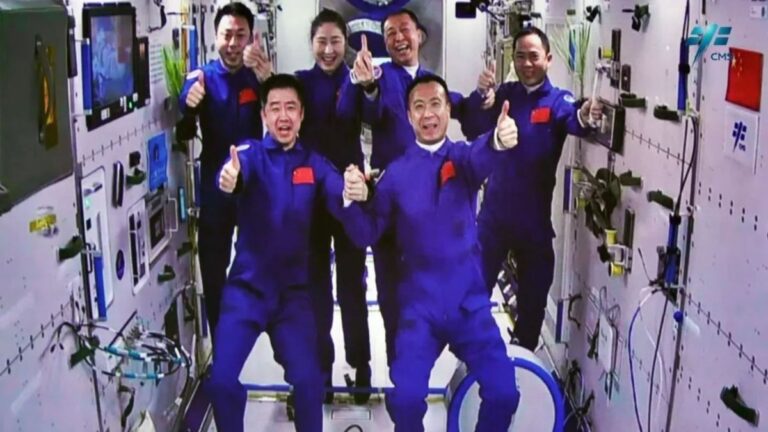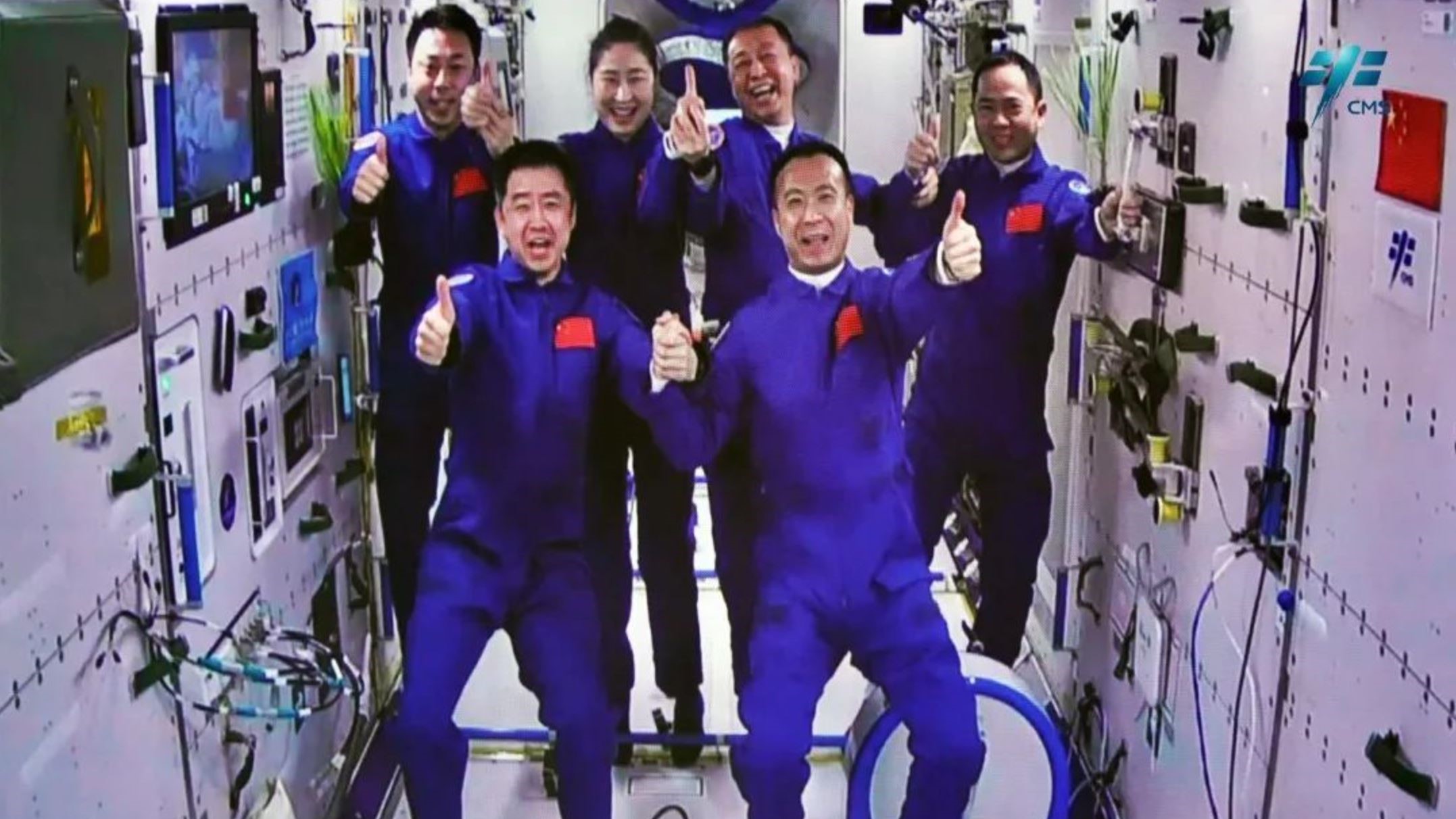
[ad_1]

The three astronauts about to take control of China’s Tiangong space station have an action-packed six months ahead of them.
Astronauts Fei Junlong, Deng Qingming and Zhang Lu reached the newly completed space station on Nov. 29 following the launch of their Shenzhou 15 spacecraft atop a Long March 2F rocket. Their arrival meant China had six astronauts in orbit for the first time.
The crew are being shown the ropes aboard Tiangong by the crew of Shenzhou 14 and carrying out preparations for the new mission, including replacing air filters and water filters. But the Shenzhou 14 trio are soon set to return home, leaving commander Fei and colleagues to get their own work underway.
Related: China’s Shenzhou 14 astronauts snap stunning photos of Earth, the moon and more
Tiangong has been expanded from one module to three modules in the past few months. This means the Shenzhou 15 crew will have more space, but also more tasks, responsibilities and maintenance work to carry out.
“The operation and maintenance of three modules is quite a huge workload,” Huang Weifen, China’s chief astronaut trainer, told CCTV (opens in new tab).
Tiangong now has 24 science cabinets located in the new Wentian and Mengtian modules, and the crew are tasked with conducting more than 100 science experiments using the new equipment over the coming half year.
The Shenzhou 15 astronauts are also scheduled to embark on three or four extravehicular activities, or spacewalks, which will bring new challenges, Huang said.
“They have to conduct extravehicular tasks at the time when the space station has its largest-ever configuration. For example, the astronauts working on the bulkhead have to move a long distance from one end of the space station to the other,” Huang said.
She added that the astronauts will need to carry out extravehicular operations in parallel at two points, meaning a greater workload for the astronauts outside the space station and the remaining crew member assisting from inside Tiangong. “They will face greater challenges,” said Huang.
Follow us on Twitter @Spacedotcom (opens in new tab) and on Facebook (opens in new tab).
[ad_2]